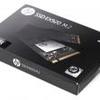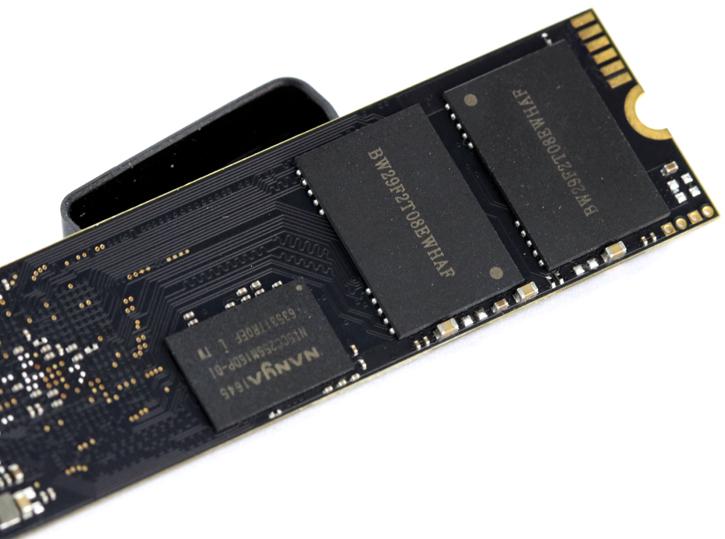Introduction
HP EX920 M.2.1TB SSD
Blazing fast performance at TLC prices
HP has released the ultra-fast new M.2. EX920 SSD series, the rather properly volume sized 1024 GB (1 TB) model which we will review is seriously fast and furious with a rated sequential read speed of up to 3200MB/s, write performance does not disappoint either, at up to 1800MB/s. Yes, HP is entering the high-end and enthusiast class with their new SSDs. The specs are fantastic, but will HP be able to deliver a unit that manages to impress? M2 is the interesting form factor, these small storage units are evolving from being "just as fast" as a regular SSD towards double, triple, quadruple, quintuple, sextuple, septuple and perhaps in the future even octuple that performance. It comes in a different package, M.2. Using the PCIe lanes interface it is so much more capable as it can deal with way more bandwidth using PCI-Express lanes. As such, M.2 solutions are intended for high-end and enthusiast class motherboards and laptops. The EX920 series M.2 SSDs are a stunningly fast series of storage technology as they offer enthusiast class performance as you are looking at a product that reads well over 3GB/sec and writes close towards 2 GB/sec. These new M.2 units use the NVMe protocol and that means storage technology at millennium falcon hyper-fast speeds while remaining competitive in pricing.
- Max Sequential Read - Up to 3200 MBps
- Max Sequential Write - Up to 1800 MBps
- 4KB Random Read - Up to 350,000 IOPS
- 4KB Random Write - Up to 250,000 IOPS
- Endurance (TBW) up to 300 TBW (1GB model)
While stability and safety of your data have become a number one priority for the manufacturers, the technology keeps advancing at as fast a pace as it does, the performance numbers a good SSD offers these days are simply breathtaking. You get between 450 MB/s to 500 MB/sec on SATA3 which is the norm for a single controller based SSD. Now in the year 2018 by combining advanced NAND Flash controller with PCIe Gen 3(8Gb/s) x 4, NvMe 1.3 interface and 3D NAND Flash, PCIe M.2 delivers sequential read speed up to 3200MB/s and sequential write speed up to 1800MB/s. A couple of years ago a 64 GB SSD was hot stuff, then slowly we moved to 120 GB, last year 240 GB for an SSD in a PC was the norm, this upcoming year we'll transition slowly to roughly 500 GB per SSD as the norm with sub 200 USD prices. With the market being so huge, fierce and competitive, it brought us to where we are today... nice volume SSDs at acceptable prices with very fast performance. We'll inspect the product PCB and components later on in the review in detail, but HP fabs this 22x80x3.5mm (2280), EX920 M.2 SSD based on vertically stacked NAND (also referred to as 3D NAND) and are now available multiple capacities. With a low power design, this drive will be among the mainstream to fastest SSDs we have ever tested.
The SSD is a Non-Volatile Memory Express (NVMe 1.3) M.2 form factor SSD, it has been fitted with new Vertically stacked NAND (64-layer BiCS) TLC. The performance numbers a good SATA3 SSD offers these days are simply excellent, but with the more niche NVMe SSDs you can triple maybe even quadruple performance, which offers serious numbers. The unit follows a smaller M.2 2280 form factor (8cm) so it will fit on most ATX motherboards capable of M.2 just fine. IOPS numbers are now reaching the 350K for read and 250K for writes marker (depends on volume size / smaller is slower). At just one-tenth the weight of a traditional 2.5-inch SSD, the M.2 SSDs are ideal for users looking to upgrade their desktop or ultra-thin PCs with high-capacity, high-performance storage. You do need a modern motherboard with capable NVMe supported M.2 (PCIe 3.0 x4 connected) interface though, please do check out your motherboard manufacturer for that. Yeah, have a peek, and then let's head onwards into this review.


